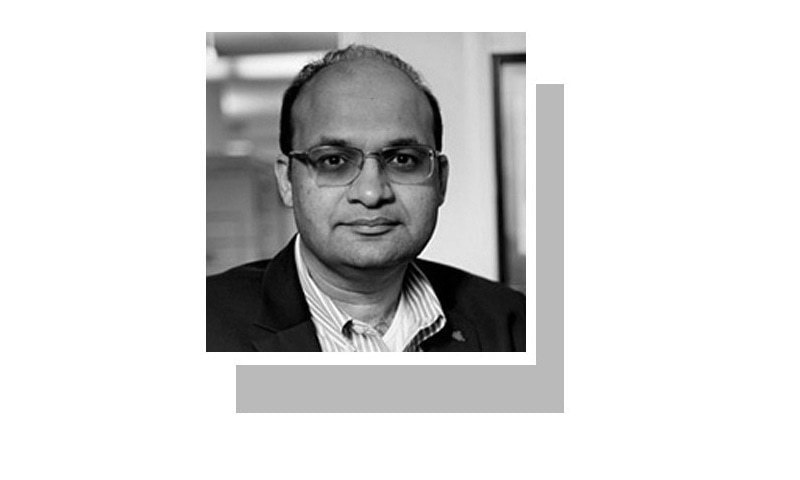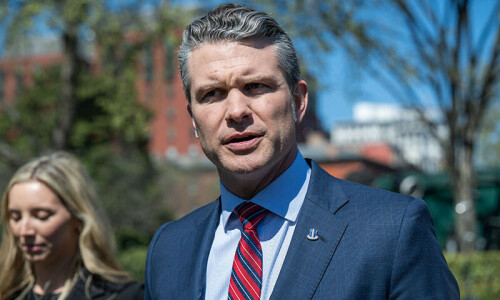SHOULD laptop distribution be stopped? Should Daanish schools be closed, reimagined, maintained or expanded? And what should be the fate of the Punjab Education Endowment Fund (PEEF), the Punjab Education Foundation (PEF) and the Punjab Education Initiatives Management Authority (PEIMA)? What policies should the new government continue in the province and which ones should it dump or change?
The problem is more acute in Punjab than in the other provinces. There is continuity in Sindh and KP, with the PPP and PTI governments respectively. In Punjab, there has been a major change. The PTI has taken over after the PML-N’s long stint, and the margin of victory is small. Punjab is still a very contested place. And though it is early days yet, the PTI has to show, as conclusively as possible, that it can deliver on its promises, that it has the ability to plan and implement innovative solutions to our chronic problems.
But this makes for a very difficult problem. Education outlays of the province, of Rs300 billion plus per annum, are largely locked in. Some 85 per cent of this goes towards salaries. Most of the rest is also recurrent budget. With fiscal space being a lot tighter, as of now at least, there is little hope that there will be more money available to start new things. If most of the funds are already committed, how can the PTI launch any of its own initiatives without taking stock of the ones that the PML-N had started?
Undoing older commitments has consequences. Though it is hard to admit, some policies of the previous government might be worth keeping. In some cases, significant commitments have been made, on behalf of the state, and these cannot be undone without legal and other consequences. If schools have been opened in collaboration with the private sector, or schools have been given to private providers under a public-private partnership arrangement, these cannot be undone without legal consequences. And there is the issue of disruption for hundreds of thousands of children, as well as thousands of teachers. So, even if the PTI thinks that individual initiatives were poorly conceived or implemented, the option of scrapping them might not be available, at least not in the short to medium term.
It would be a shame if good policies do not survive political transitions.
If the original idea of the previous government was good; will the PTI government get any credit for continuing them? If it does not get any credit, will it have an incentive to get rid of even good ideas? It would be a shame if politics drives policymaking to the point that even good policies do not survive political transitions.
The PTI had committed to a) getting all five- to 16-year-olds in schools, and b) improving the quality of education for all children. How will this happen if there is a fiscal crunch and there is not a whole lot of money to do new programming? Even today, in some places, we do not have the needed number of primary schools. There are many places we do not have middle and high schools. We have a shortage of trained teachers.
Even if the government had money, how long would it take for it to open new schools, upgrade existing ones and/ or start second shifts in existing facilities? This will all take a long time. And given that some 40pc of enrolled children already go to private schools — and private school providers have a lot of experience in providing education — partnering with the private sector to expand access and improve the quality of provision makes eminent sense. Public-private partnership possibilities and potential should not be ignored just because some of the initiatives were started by the previous government.
The PTI government can create feedback loops from previous policies so that we can learn from these initiatives/ experiments and then design future policies. Did the PEF model work? What were the limitations and where? Could these limitations be removed? PEF programmes were, by and large, focused on provision at the primary level; could we design them to expand access, and quickly, at the middle and high school level?
The last government set up an endowment fund for the PEEF and gave hundreds of thousands of scholarships to deserving students. The PEEF evaluations that I have seen have been quite good. And the impact on children who have received these scholarships has also been, it seems, quite substantial. Should the policy be expanded? If the PTI is serious about providing equal opportunity to all children, we will have to have systems for having merit- and needs-based scholarships. The PEEF can provide us with the evidence we need.
There will be policies that will need phasing out. Whether the government wants to distribute laptops or not, it is not a decision about education. There is no evidence from anywhere to support the claim that distributing laptops has strong and positive education-related impacts. If the government wants to do it for political reasons, for popularity, that is a different matter.
There are areas in which the previous government was not able to do much. We still do not have good models for managing per-service and in-service teacher training or teacher remuneration and career paths. We do not have good models for managing governance of public schools. There are many other areas, within education, that need reforms too. The PTI will need to bring in new policies for these.
There is still a lot of uncertainty about the PTI’s policies. While this is understandable during the early days, it cannot go on for long. The PTI should come out with its policy vision and clarify what it wants to do. Let us hope that the decision to continue, amend or phase out policies and initiatives will be on the basis of evidence and not politics.
The writer is a senior research fellow at the Institute of Development and Economic Alternatives and an associate professor economic at Lums, Lahore.
Published in Dawn, November 16th, 2018















































